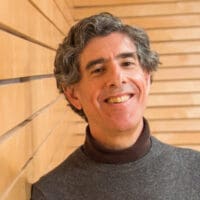Overview
Mind-brain-body interaction and meditation
Many peripheral biological systems exist within a network of neural and humoral connections that mediate the influence of the brain on peripheral biological function. Afferent connections to the brain are reciprocated in most of these systems. This anatomical and functional arrangement permits the mind to influence the body and vice versa. Meditation is a form of mental training that involves the voluntary alteration of patterns of neural activity that can produce consequences for peripheral biology through these mechanisms.
Examples from recent and ongoing studies of the neural, immune and endocrine changes produced by meditation will be presented to illustrate possible mechanisms via which meditation can promote increased mental and physical health.
- Dialogue 1316 sessions
- November 8, 2005Dar Constitution Hall, Washington, DC
- Transcript - Connection, Community, and Compassion with Susan Bauer-Wu, Dekila Chungyalpa, Elissa Epel, and Brother Phap Dung |pdf|


